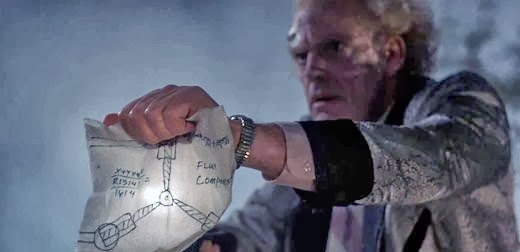Innovation and discovery as chronicled in past issues of Scientific American
By Daniel C. Schlenoff
November 1963
Vision in the Brain
“In most parts of the nervous system the anatomy is too intricate to reveal much about function. One way to circumvent this difficulty is to record impulses with microelectrodes in anesthetized animals, first from the fibers coming into a structure of neurons and then from the neurons themselves or from the fibers they send onward. Comparison of the behavior of incoming and outgoing fibers provides a basis for learning what the structure does. Through such exploration of the different parts of the brain concerned with vision one can hope to build up some idea of how the entire visual system works. That is what Wiesel and I have undertaken, mainly through studies of the visual system of the cat. —David H. Hubel”
Hubel and Torsten Wiesel had a share of the 1981 Nobel Prize in medicine for this work.
November 1913
Ten Greatest Inventions, 1888–1913
(Scientific American ran an essay contest on the “ten greatest inventions of our time,” defined as the 25 years prior to 1913.)
“No two competitors selected the same set of inventions. In fact, only one invention, that of Wireless Telegraphy, was conceded unanimously to belong among the ten greatest. The vote on Aeroplanes was almost unanimous. But beyond that there was not the slightest trace of unanimity. The following is the result of the vote on a percentage basis:
Wireless telegraphy—97%
Aeroplane—75%
X-Ray machine—74%
Automobile—66%
Motion pictures—63%
Reinforced concrete—37%
Phonograph—37%
Incandescent electric lamp—35%
Steam turbine—34%
Electric car—34%”
The Linotype composition machine ranked 20th
COMPOSITION: The latest version of the Mergenthaler machine for setting type in 1913. It ranked "with the invention of movable type and of the printing press."
Image: SCIENTIFIC AMERICAN, VOL. CIX, NO. 18; NOVEMBER 1, 1913
Darwinism and Wallaceism
“Alfred Russel Wallace has just passed away. In a letter to Joseph Hooker written in 1858, [Thomas Henry] Huxley writes, ‘Wallace's impetus seems to have set Darwin going in earnest, and I am rejoiced to hear we shall learn his views at last. I look forward to a great revolution being effected.’ The communication from Wallace did certainly serve to accelerate Darwin's work; but it would be a serious mistake to suppose that the service of Wallace was confined to stimulating Darwin. There can be no doubt that if Darwin had not given to the world the theory of natural selection, Wallace would have done so.”
November 1863
Petroleum Trade
“In carrying petroleum from one place to another, or when it is lying in stores or sheds, some of the liquid will convert into vapor, in which state it will escape through very minute openings or pores in the vessel containing it. A loss of the liquid is not only thus caused, but this vapor when it escapes and mingles with about eight times its volume of air, becomes as explosive as gunpowder, and if the light of a match or lamp is then brought into contact with it, a violent explosion will take place. Several sloops loaded with petroleum have been subjected to explosions, and an accident of a similar kind recently took place in a large druggist's establishment in Albany, N.Y. Cases like these call for preventive agencies, such as vessels that will not leak, and special places for storage.”
Now Read This
“Don't take a newspaper; don't read one of any kind. If you hear persons discussing this or that great battle, ask stupidly what it all means. Emulate Rip Van Winkle; steep your senses in moral and mental oblivion, and pay no attention to what is passing about you. If you have children, don't take any paper for them; tell them ‘book larnin’ ain't no ‘count.’ In this way you may save two or three dollars—the price of a paper—and lose $500 or $5,000 by not being informed about markets, supply and demand, and a thousand other things as essential to an enterprising man as light and air.”
After 1980
310 DNA Sequencer
Applied Biosystems
The Flux Capacitor
WALL-E



